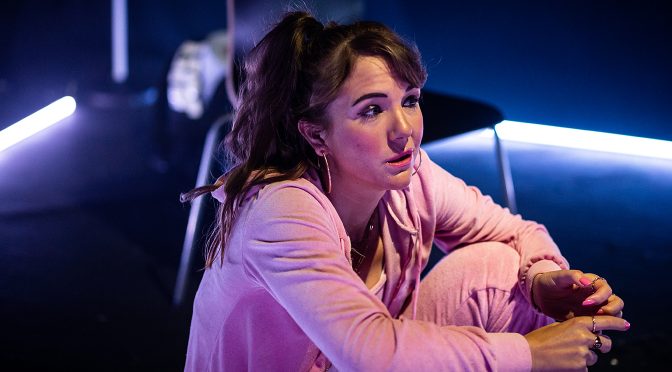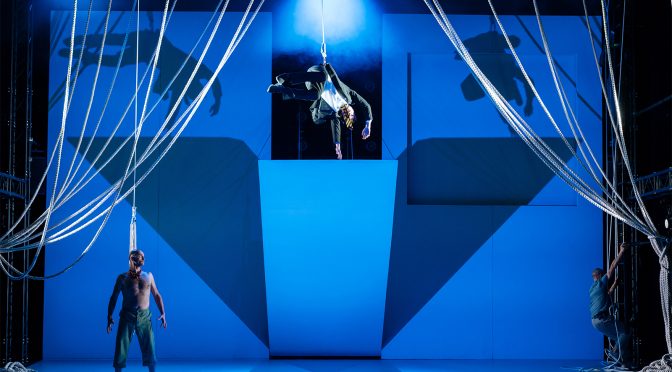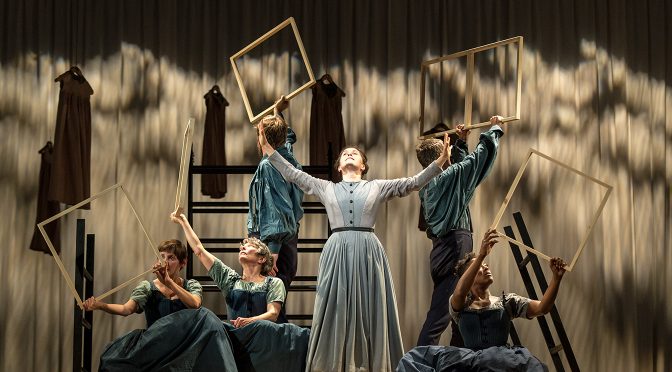Over the next five weeks, Londoners have the chance to see shows from all over the country just five minutes from Caledonian Road Tube. Five shows, supported by different theatres, will visit as part of the Pleasance’s National Partnership Awards. If this first offering, from Florence Espeut-Nickless and supported by Bristol Old Vic Ferment, is anything to go by there are real treats in store.
Nobody disagrees that in theatre’s drive for inclusivity white working-class women’s voices need to be heard. As the story of a girl called Destiny from a council estate, this monologue fits that brief. But that the setting is rural Wiltshire is also important. This voice, this accent – literally – isn’t one that we hear on stage. I’m reasonably eclectic in my theatre trips but, apart from Shakespearean rustics, I don’t recall hearing it before.
While important, inclusivity in itself doesn’t make the show worth seeing. It must be good theatre, too! Thankfully, Destiny stands on its own merits and is easy to recommend.
As an autobiographical show, Espeut-Nickless’ writing has a sincere and authentic tone. There’s a clear structure and motivation behind a monologue that provides insight and drama, with careful control aided by director and dramaturg Jesse Jones. And there is a real conviction behind Espeut-Nickless’ performance that wins further admiration.
As for what happens to Destiny, as Espeut-Nickless’ said while thanking the audience after deserved applause, the play isn’t enjoyable as such. There’s a depressing inevitability to the way the character is used by men and poorly treated by those we expect to help her. Destiny’s encounters with the legal profession and social services are truly awful, making the piece grim but powerful.
What might make the story predictable is cleverly used. The fact that the audience can see what is coming next still creates tension. And there is an impressive subtlety to our heroine. Destiny has charm – mostly from her irrepressible optimism – to match her rough edges. Poor decisions abound… but what choices does Destiny really have? How can this lonely teen deal with the traumatic situations she faces? Understandably naïve (and poorly educated) Destiny’s ignorance becomes a powerful challenge to the audience.
The run for Destiny is short… try to catch it this weekend or look out for a promised digital on-demand performance to be announced soon. Other shows are supported by the Pitlochry Festival Theatre, Leicester’s Curve Theatre, Manchester’s HOME and the Theatre Royal Plymouth, with the diverse programme running until 11 September.
Until 7 August 2021
Photo by Chelsey Cliff



